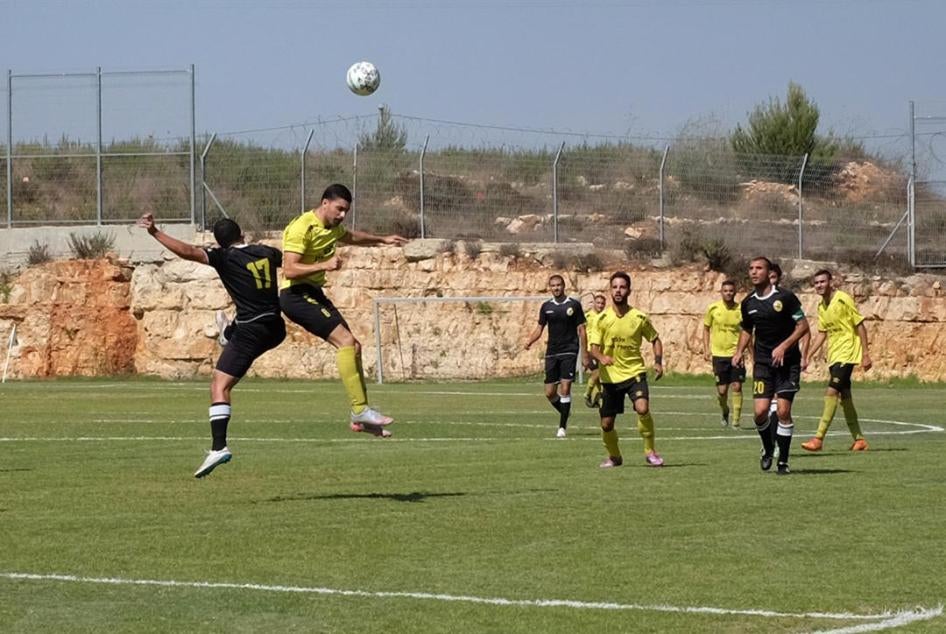(New York) – FIFA President Gianni Infantino today won yet another delay on deciding whether to allow the Israel Football Association to continue holding games in unlawful Israeli settlements in the West Bank, keeping FIFA in direct violation of its own statutes and commitment to respect human rights.
Infantino won a 72 percent majority in FIFA’s Congress (its general assembly) to delay a decision on the issue for a fifth year, until March 2018.
“Today’s decision to delay means FIFA will continue sponsoring games on stolen land, contrary to its statutes and human rights responsibilities,” said Sari Bashi, Israel and Palestine advocacy director at Human Rights Watch. “After four years, it’s not clear why FIFA needs yet another year to decide whether or not to follow its own rules.”
At today’s Congress in Bahrain, the Palestinian Football Association (PFA) proposed a resolution to require the Israel Football Association (IFA) to stop holding games in settlements in the West Bank, considered by FIFA to be part of the PFA’s territory. FIFA’s statutes prohibit a member association from holding games on the territory of another member association without its permission.
Infantino pre-empted that vote with his own proposal, which the Congress approved, that the decision on the settlement clubs be transferred to FIFA’s Council, a 31-member governing body led by Infantino. The proposal that the Congress approved gave a deadline of March 2018, but Infantino said he would put the settlement club issue on the agenda of an October 27, 2017 FIFA Council meeting.
Today’s move came after FIFA’s Council announced on Tuesday that a decision on the settlement clubs would be “premature.” Infantino told the Congress today that the Council’s recommendation was unanimous.
FIFA has been confronted by this issue since 2013. In 2015, it appointed a special monitoring committee, chaired by Tokyo Sexwale, to resolve the issue within a year. Sexwale and Infantino requested an extension of the mandate, promising a decision by October 2016, then by January 2017, and then by March 2017. Sexwale said in October 2016 that the issue was “almost in extra time.” In a draft report he presented to the Israeli and Palestinian football associations in March 2017, Sexwale said that further negotiation over the issue would be futile, given the time elapsed and the gap between the parties and wrote, “What FIFA cannot avoid is taking a decision on this matter.”
FIFA: Delay of Israeli Settlement Club Decision Sets Back Reform
Postponement Means FIFA Continues to Violate Own Rules
Your tax deductible gift can help stop human rights violations and save lives around the world.
Region / Country
Most Viewed
-
November 25, 2019
A Dirty Investment

-
April 24, 2024
EU Parliament Approves Supply Chain Law

-
April 24, 2024
Iran: Popular Rapper Sentenced to Death for Dissent

-
June 24, 2022
Q&A: Access to Abortion is a Human Right

-
April 27, 2021
A Threshold Crossed





